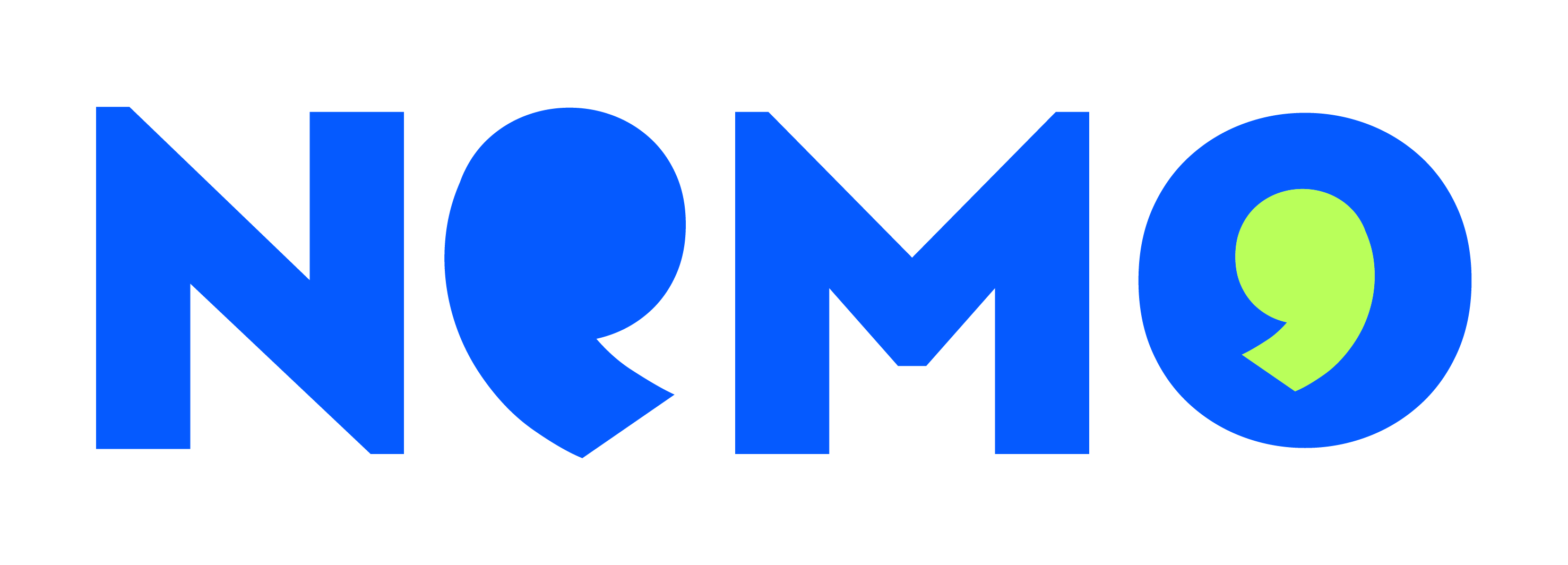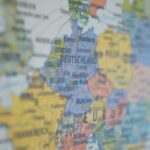Matt Kasper (Meydan TV, Azerbaijan) hosts Joris van Duijne (Zamaneh Media, Iran) to discuss issues exiled media are facing in the development sphere and how they can be improved, such as the eligibility problem that exiled media outlets often run into.
Transcript
Ep 5: Funding and bureaucracy
Matt:
Welcome to the Exiled Media Podcast episode on Donor Bureaucracy. I’m Matt Kasper from Meydan TV, and I’m here with Joris van Duijne from Zamaneh Media.
Joris, can you tell us a little bit about yourself?
Joris:
Of course. My name is Joris van Duijne. I’m the Executive Director of Zamaneh Media. We are a Persian-language exile media organization based out of Amsterdam. We were established in 2005.
It’s my absolute pleasure to be here.
Matt:
Well, it’s great to have you on the podcast. Zamaneh Media and Meydan TV are two of the three podcast producers, and creators, that are doing this Exiled Media Podcast together with Confidencial from Nicaragua.
I am the publisher at Meydan TV. We are a Berlin-based media outlet in exile for Azerbaijan. Our main focus, our main audience, similar to Zamaneh Media, is in the country that we’re reporting on and we’ve been around for about 10 years now. We have become the largest digital media outlet in the country.
We want to talk about donor bureaucracy today. We want to discuss some issues we see that exiled media is facing in the development sphere, some of our ideas, and how these situations can be improved. One of the topics that we really wanted to focus on is the eligibility problem that exiled media outlets often run into. Joris, maybe you can explain a little bit about what that means.
Joris:
Funders have a multitude of guidelines. A lot of those make perfect sense and are incredibly useful. Some funds are intended for one region, some for another, some for one country, some for many countries, and some are global, which makes total sense.
What we find, however, is that this geographic eligibility sometimes is a problem for an organization like ours, which almost by definition works for one country and is registered and based out of another.
For a lot of development work, it makes total sense. If you plan to set up an orphanage in a country without having a legal presence there, that is completely logical. At the same time for us, that’s often a burden. So the geographic eligibility of it is sometimes incredibly problematic.
Matt:
Yes. What that means is that a call comes out and says it’s for these (specific) countries. Rarely, both the country of location and the country of the audience are in that (same group), unless it’s a worldwide call, which is not so common. And that’s not how a lot of organizations work. They often have a regional focus.
Joris:
Or, you know, or a guideline that excludes you in both, which I have also seen.
Matt:
So exclusion, not just eligibility.
Joris:
Also in terms of eligibility, if you are based in the Netherlands or Germany, you have to serve an audience in the Netherlands or Germany, and so we are excluded both in Azerbaijan and Iran and in Germany and the Netherlands.
Matt:
Yes. I get tons of updates or newsletters with opportunities. And then, you read that the opportunities are all for Germany or the European Union. So you kind of have to push them all aside and say, alright, those are definitely not going to work. It’s a problem that we run into a lot. How have you solved that or how have you found some way to kind of get around that? Or have you?
Joris:
Sometimes we are more successful than others. It can be very rigid at the same time. We find —and I’m sure you have a similar experience— that an open conversation with these funders can be extremely helpful. We had a case where we were excluded both in the Netherlands and in Iran, but after having a conversation with that funder and explaining to them how we are caught in the middle by their regulations, the next year the guidelines changed in a way to enable for it to work with exiled media. That is not always easy to do, but I guess open communication is often a good way to go.
Matt:
I think that’s a good tip for those who are maybe new to the sphere, who are newly exiled, or are running an organization or starting as an organization, and are maybe seeing calls and thinking they’re not eligible. If there’s a contact email or if you have a contact there to clarify, just ask. Because sometimes they’re not aware that the eligibility requirements are, in some way, narrowing the options for people who would be relevant to apply. When explaining the situation, often they say then, that’s fine. That’s not really a problem anymore. So it’s something quite simple but it’s, you know, ask.
I’m assuming —I’ve never worked in development as you have, Joris— that when you (media development organizations or donors) put together these calls you’re not writing the list of countries one by one again. You kind of have a set standardized form that you update.
Joris:
It’s true. It’s heavily standardized.
Matt:
It makes sense that they are. But then again, we kind of fall through the cracks. We are working in the digital sphere. And the digital sphere, although it knows many boundaries, also knows fewer when it comes to national boundaries and development in a certain region or not. Exiled media is working transnationally, but the eligibility requirements often aren’t. What do we do then about those that we can’t get in contact with?
Joris:
We hope they listen to our podcast, Matt.
Matt:
A solutions-based podcast.
Joris:
Yes, pretty much a solution-based podcast. No, but there might be quick fixes as long as funders are sufficiently aware of the added value of exiled media, particularly, and media in general, and media development. But particularly exiled media, for some of this hardest-to-reach, closed authoritarian environments, where public communication even but let alone independent media in the country is not possible. Our sector adds a lot of value. It can also be a very complementary component to your wider development agenda as a funder. So find a way to make an inclusion, to put in a small caveat that would at least enable our sector to apply.
Matt:
I will say this because I think many know but many also don’t:
Exiled media no longer means exiled media for people in exile.
Joris:
Definitely.
Matt:
That is what the digital sphere allows us to do. In the past, radio was able to break the boundary, to get past the border. Very, very often is the case that when we say exiled media, it doesn’t mean our readers are in exile. Some of them may be but most of them aren’t. I think it’s a good reason to look at the eligibility requirements one more time before posting the call.
Okay, let’s take a shift a bit from eligibility and talk more about our role and how media development organizations view the role of exiled media, and how exiled media and media outlets in general are working. Especially in difficult spheres where there are a few options for them to get through to the population, or implement the changes and the improvements they’re trying to implement.
Joris:
Can I give you an example? All donors have, well not necessarily, but often they have a set of priorities. So what I said earlier, there’s an immediate flip side to it, in that we are (media organizations) kind of used for strategic communication.
So, I had a media development organization that approached me a few years back. I won’t name names. They basically said: “We have this fantastic new project. It’s about the environment. We’re setting up a small team of writers. And in the next year or so, we are going to publish 200, no, we are going to develop 200 articles on the environment in Persian, and we’d like for that to be published on your website.”
To an untrained ear, that might sound like a very reasonable request, but it’s an outrageous request, particularly coming from a media development organization that should understand the value and importance of editorial independence.
My editor-in-chief determines what goes on the website and that is a careful consideration taking into account what people want as well, not necessarily what we as a media or any donor of ours think that people need or should have. An important element is what people want. And to flood any sort of news medium with that kind of strategic communication… and environment is one example. Known and notorious other examples are reproductive rights and LGBT rights, and all kinds of other topics that we inherently agree with, but that has to be…
Matt:
That you’re covering anyway, but not with that flood…
Joris:
Exactly.
Matt:
Was the idea fantastic? I mean, the environmental coverage that they wanted to…
Joris:
Absolutely not.
Matt:
I was hoping you would say yes, and then we could say, it doesn’t matter if the idea is fantastic. It’s about whether or not it’s appropriate for media outlets to be used for strategic communication in this way.
Joris:
To me, that’s the same thing. I say no because I include that second step as well. Content-wise that was not a problem.
Matt:
I think that’s the key. When you are working at a media organization where that is your biggest focus (editorial independence)… and I think it’s even more relevant when working in hostile regimes, which often leads to media organizations being in exile. It’s paramount even more than it would be in another society, that editorial independence. It is already such a rare commodity. Commodity is not the right word, but it’s the right saying.
It doesn’t exist. And to kind of ruin that (for a media outlet). It’s not seen like that. It’s more of a “maybe just bend it a bit and it works”. But it doesn’t. It’s extremely important to protect that, and as you said it’s also about what your audience wants.
Joris:
Definitely.
Matt:
And it’s not about teaching them, so much as it is about informing them. And I think that’s very true in societies where information itself is very difficult to find. You need to make sure that you are holding up that value or that promise to them that you are giving them unbiased information, regardless of whether it’s with good intentions or not.
Joris:
Definitely.
Matt:
So what is the problem then? Why does that misunderstanding occur? Does it have something to do with the development mentality and our, as media organizations, being in the development funding?
Joris:
Perhaps. What I find good to always keep in mind is that in any other sector, we would not be a development cause, we would be a business. Media in the Netherlands, in Germany, or anywhere, or in most other places in the world, are a business. And that creates a sort of tension. Whereas…
Matt:
An NGO is and NGO.
Joris:
An NGO is an NGO in Iran or the Netherlands. And media, by sort of circumstances, has been pushed into this development sphere and this role as being part of this development agenda, where that’s not technically how media should work.
Matt:
Is it maybe because media is not seen as a goal within itself in the development sphere? It’s seen as important but it is not the main goal, the priority, or it’s not part of the exact priority, or the goal that those organizations have.
Joris:
It’s often seen as a tool to reach other goals rather than a goal in itself.
Matt:
What is the solution?
Joris:
What is the solution?
Matt:
I keep asking you!
Joris:
This is even more tricky, other than to again repeat: communication, communication communication. And I realize that this is a luxury that you and I have: we have the size, the capacity, the reputation, and the history to explain this to people.
Matt:
But you didn’t always and neither did we. I mean it comes over time, but that’s why even now…
Joris:
It gets easier. And yes, we struggled with that in the past. But unless there is a major shift —and I know that some people are pushing for that— in the development thinking about media, it is a fait accompli. It is something that we just have to deal with.
I find that with some funders it is easier than with others, but luckily I am in a position where I, time and again, can. But also, I have to explain to our funders that I understand that they have a strategic communication goal. They want to further children’s rights, and they want to further freedom of association. All fine. You want to fight against capital punishment. Perfect. We all support it. However, there are two things to that:
One is I will only accept your money if you will also pay for the sports coverage that we do or the book review or pretty much anything. So it can be a part of the content that you support. It can never be the sole content that you support. And that enables me to sort of have that mix of content and to keep it sort of within reason, there’s one thing. And that is not a solution. It’s sort of a measure that we take to make it work.
Matt:
It’s a practical solution. Maybe it’s not the solution to changing the system, right? That’s not something that happens overnight. But it’s a tip for people who are starting, who are not sure how to deal with requests that they’re getting that seem great, and maybe they’re in a position where they need funding. They’re in a funding gap or they don’t really have a lot to go on, and they’re still worried about what’s gonna happen in two or three months. Yet, they want to continue to keep their media afloat.
Joris:
Have the conversation.
Matt:
Have the conversation, explain your position, and explain why it’s important. It may not lead to anything, but it may also lead to an understanding and an agreement where it’s clear that your editorial guidelines and your editorial policies are going to be respected, and on their end, they can figure out a way to make that work, to make it happen. And that’s their job.
Joris:
And to make it practical for that startup that really wants that money, what I find incredibly useful is you have an ethical argument for it. Right?
Matt:
Absolutely.
Joris:
We explain that editorial independence is of paramount importance. That is partly an ethical argument to make. I find that donors are very susceptible to a much more practical argument that you can make. Because if your tool is strategic communication, but you overload my website in a way that 50% of the content that is there is on the environment, then my audience is going to move away. If my audience is going to move away, you’re still paying for that content, but you’re not reaching anybody.
We are good at what we do in reaching millions of people in these very restrictive environments because we offer people what people want to hear, read, see, etcetera. So you can explain to the donor why it hurts their purpose as well.
Matt:
I think that’s great advice. It makes it clear that media is not strategic communication. But also media development is not what’s happening when you support a media outlet. If you support trainings, if you support XYZ to improve the capacities, that is media development. When you are supporting content production, don’t be picky. Because it’s holistic, and it’s not development, it’s support.
Joris:
And we need more media support. We cannot survive on media development alone. There are only so many layers of security and trainings that that we can both cope with.
Matt:
Yes. And there are many outlets, new, old, small, and big, that may still be able to gain something from those development activities. But that’s not what we’re here for. That’s not what our main focus is. We may collaborate, but the focus is support.
Joris:
It’s incredibly useful, up to a point.
Matt:
Yeah.
Joris:
But if you’re truly interested in creating a sustainable plural media and environment, for restricted environments, then that development serves a fantastic purpose up to a point.
Matt:
You can teach a lot of people how to be journalists, but then they still need jobs.
Joris:
Exactly.
Matt:
They have to work somewhere!
Joris:
Exactly.
Matt:
So, I think that we’ve been very, I mean, we didn’t complain at all, which is the goal of…
Joris:
We just solved it, right?
Matt:
We just solved it. But no, really, I think we gave a couple of really good solutions and tips for those putting together those eligibility requirements: take a second to think about whether or not the regions you’re working on have exiled outlets working in them, that may be cut out.
Otherwise for exiled media outlets: ask if the eligibility is indeed that strict. Tell them that your editorial policy is this and you just can’t…
Joris:
Don’t say jump.
Matt:
There’s no way that you can compromise, make it clear. Make the connection, ask the questions, and don’t feel like you have to say yes to anything. You don’t. And don’t take everything at face value. Write the contact email.
So, I think we’ve solved it. We’ve solved everything, that’s good. And it was nice having you.
Joris:
It was my pleasure. Good talking to you again.
Matt:
I think you made some good points.
Joris:
Some.
Matt:
Some, I’ll take home with me. For our listeners, we will continue with the podcast series with other episodes on other management topics, as well as editorial topics, with different guests from Zamaneh, Confidencial, and Meydan. But also, other media outlets will share some of the solutions they’ve found to work in exile and restrictive regimes.



